Complete Solutions to All Questions of chapter STRUCTURE OF ATOM of Class 11 book with complete answers and questions
| Class 11 | CHEMISTRY |
| Chapter | STRUCTURE OF ATOM |
| NCERT EXEMPLAR | All Questions |
| Number Of Questions | 53 |
| Academic Year | 2023-24 |
Which of the following conclusions couldnot be derived from Rutehrford's `alpha`-particle scattering experiment?
View SolutionWhich of the following options does not represent ground state electronic configuration of an atom?
View SolutionThe probability density plots of 1 s and 2s orbitals are given in figure.
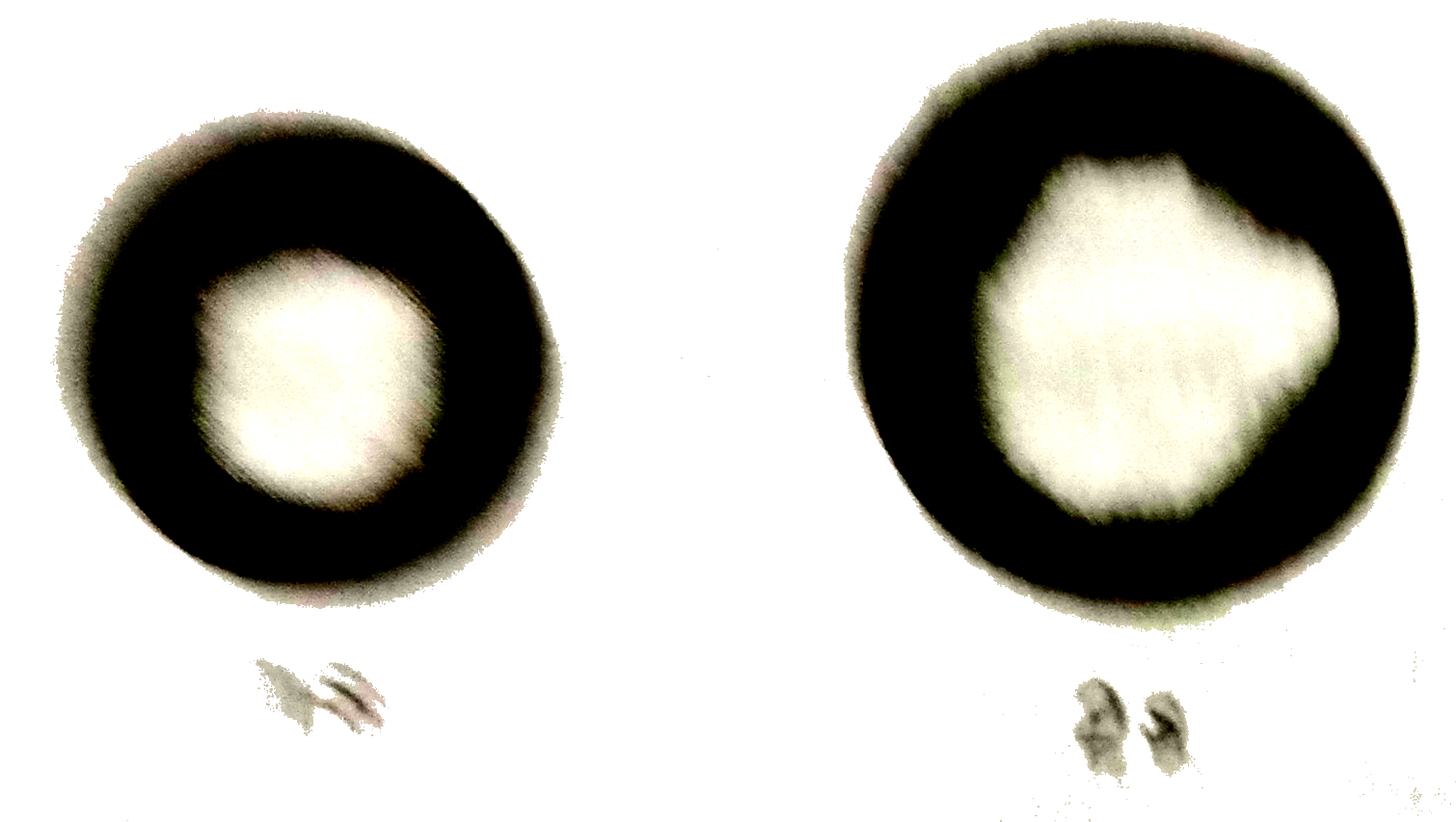
The density of dots in a region represetns the probability density of finding electrons in the region. On the basis of above diagram which of the following statements is incorrect?
View SolutionWhich of the following statement is not correct regarding cathode rays `:`
View SolutionWhich of the following statements about the electron is incorrect?
View SolutionWhich of the following properties of atom could be explained correctly by Thomson model of atom?
View SolutionTwo atoms are said to be isobars is
View SolutionThe number of radial nodes for 3p orbital is......
View SolutionNumber of angular nodes for 4d orbtial is.........
View SolutionWhich of the following is responsible to rule out the existence of definite paths or trajectories of electrons?
View SolutionTotal number of orbitals associated with thrid shell will be.....
View SolutionOrbital angular momentum depends on .........
View SolutionChlorine exists in two isotopic forms `Cl-37` and Cl-35 but its atomic mass is 35.5. this indicates the ratio of Cl-37 and Cl-35 is approximately
View SolutionWhich of the following pairs of ions have the same electronic configuration A)`Cr^(+3),Fe^(+3)` B)`Fe^(+3),Mn^(+2)` C)`Fe^(+3),Co^(+3)` D)`Sc^(+3),Cr^(+3)`
View SolutionFor the electrons of oxygen atom, which of the following statemetns correct?
View SolutionIt travelling at same speeds, which of the following matter waves have the shortest wavelength?
View SolutionIdentify the paris which are not of isotopes?
View SolutionOut of the folowing paris of electorns, identify the pairs of electrons present in degenrate orbitals.
View SolutionWhich of the following sets of quantum numbers are correct?
n l m n l m
View SolutionIn which of the following pairs the ions are isoelectronic?
View SolutionWhich of the following statements concerning the quantum numbers are correct?
View SolutionArrange s,p and d subshells of a shell in the increasing order of effective nuclear charge `(Z_(eff))` experienced by the electron present in them.
View SolutionShow the distribution of electrons in oxygen atom (atomic number 8) using orbital diagram.
View SolutionNickel atom can lose two electrons to form `Ni^(2+)` ion. The atomic number of nickel is 28. From which orbital will nickel lose two electrons?
View SolutionWhich of the following orbitals are degernate?
`3d_(xy),4d_(xy),3d_(z^(2),3d_(yz),4d_(yz),4d_(z^(2))`
View SolutionCalculate the total number of angular nodes and radical nodes present in 3p orbital.
View SolutionThe arrangement of orbitals on the basis of energy is based upon their (n+l) value. Lower the value of (n+l), lower is the energy . For orbitals having same values of (n+l). The orbital with lower value of n will have lower energy.
I. Based upon the baove information arrange the following orbitals in the increasing order of energy.
(a) 1s,2s,3s,2p (b) 4s,3s,3p,4d
(c) 25p,4d,5d,4f,6s (d) 5f,6d,7s,7p
II. Based upon the above information Solve the question. give below.
(a) hich of the following orbitals has the lowest energy
`4d,4f,5s,5p`
(b) which of the following orbitals has the higher energy?
`5p,5d,5f,6s,6p`
View SolutionWhich of the following will not show deflection from the path on passing through an electric field?
Proton,cathode rays, electron,neutron.
View SolutionAn atom having atomic mass number 13 has 7 neutrons. What is the atomic number of the atom.
View SolutionWavelength of different ra diations are given below.
`lambda` (A) ` = 300nmlambda` (B) =300 `mumlambda` (C) `=3nmlambda` (D)=`30overset(@)A`
Arrange these radiations in the increasing order of their energies.
View SolutionThe electronic configuration of valence shell of Cu is `3d^(10)4s^(1)` and not `3d^(9)4s^(2)`. How is this configuration explained?
View SolutionThe Balmer series in the hydrogen spectrum corresponds to the transition from ` n_(1)=2` to `n_(2)=3,4`........ This series lies in the visible region. Calculate the wave number of line associated with the transition in Balmer series when the electron moves to n=4 orbit.
`(R_(H)=109677cm^(-1))`
View SolutionAccording to de-Brogile, matter should exhibit dual behaviour, that is both particle and wave like properties. However, a cricket ball of mass 100 g does not move like a wave when it is thrown by a b owler at a speed of 100km/h. calculate the wavelength of the ball and explain why it does not show wave nature.
View SolutionWhat is the experimental evidence in support of the diea that electronic energies in an atom are quantized?
View SolutionOut of electron and proton which one will have, a higher velocity to produce matter waves of the same wavelength ? Explain it.
View SolutionA hypothetical electromagnetic wave is shown in figure. Find out the wavelength of the radiation.
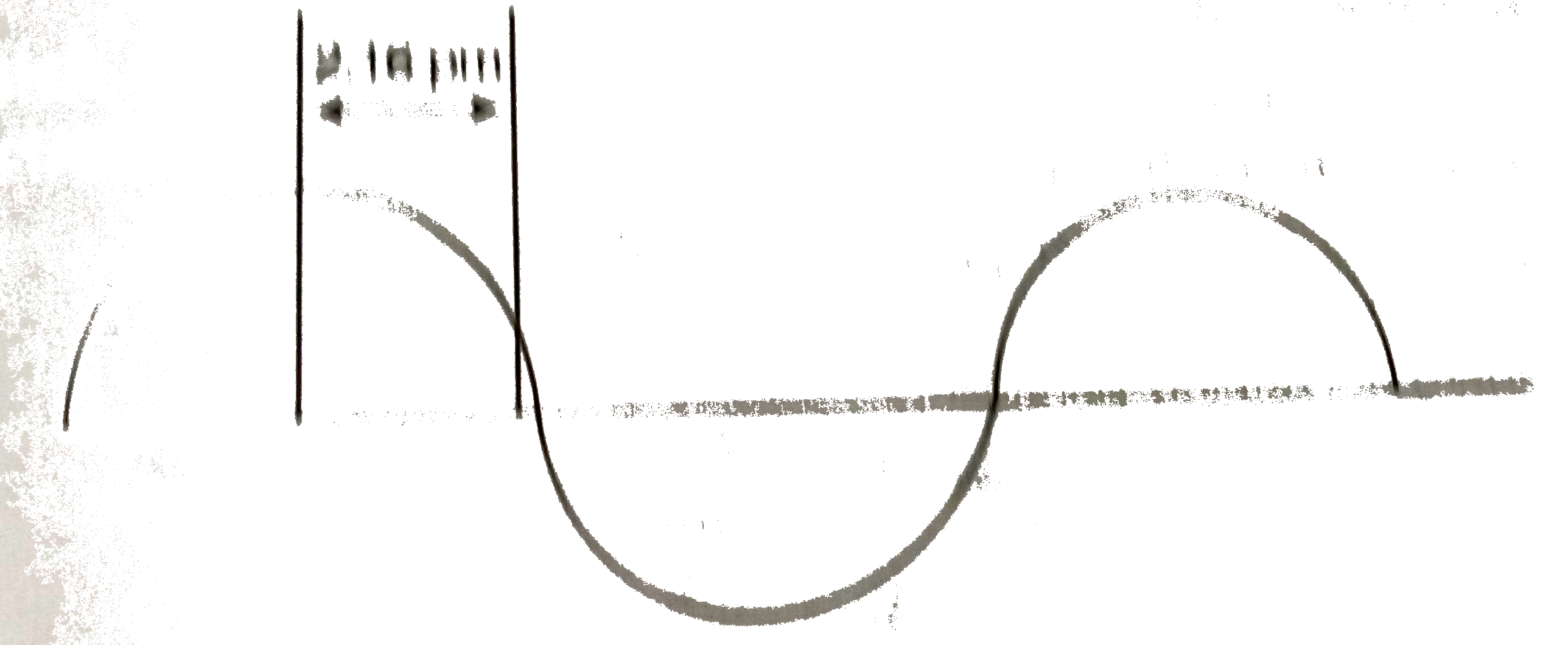
View SolutionChlorophyll present in green leaves of plants absorbs light at `4.620xx10^(14)Hz`. Calculate the wavelength of radiation in nanometer. Which part of the electromagnetic spectrum does it belong to?
View SolutionWhat is the difference between the terms orbit and orbital?
View SolutionTable-tennis ball has mass 10g and s peed of 90m/s. if speed can be meausred within an accuracy of 4%. What will be the uncertainly in speed and position?
View SolutionThe effect of uncertainty principle is significant only for motion of microscopic particles and is negligible for the macroscopic particles. Justify the statement with the help of a suitable example.
View SolutionHydrogen atom has only one electron, So, mutual repulsion between electrons is absent. However, in multielectron atoms mutual repulsion between the electrons is significant. How does this affect the energy of an electron in the orbitals of the same prinicipal quantum number in multielectron atoms?
View SolutionMatch the following species with their corresponding ground state electronic configuration
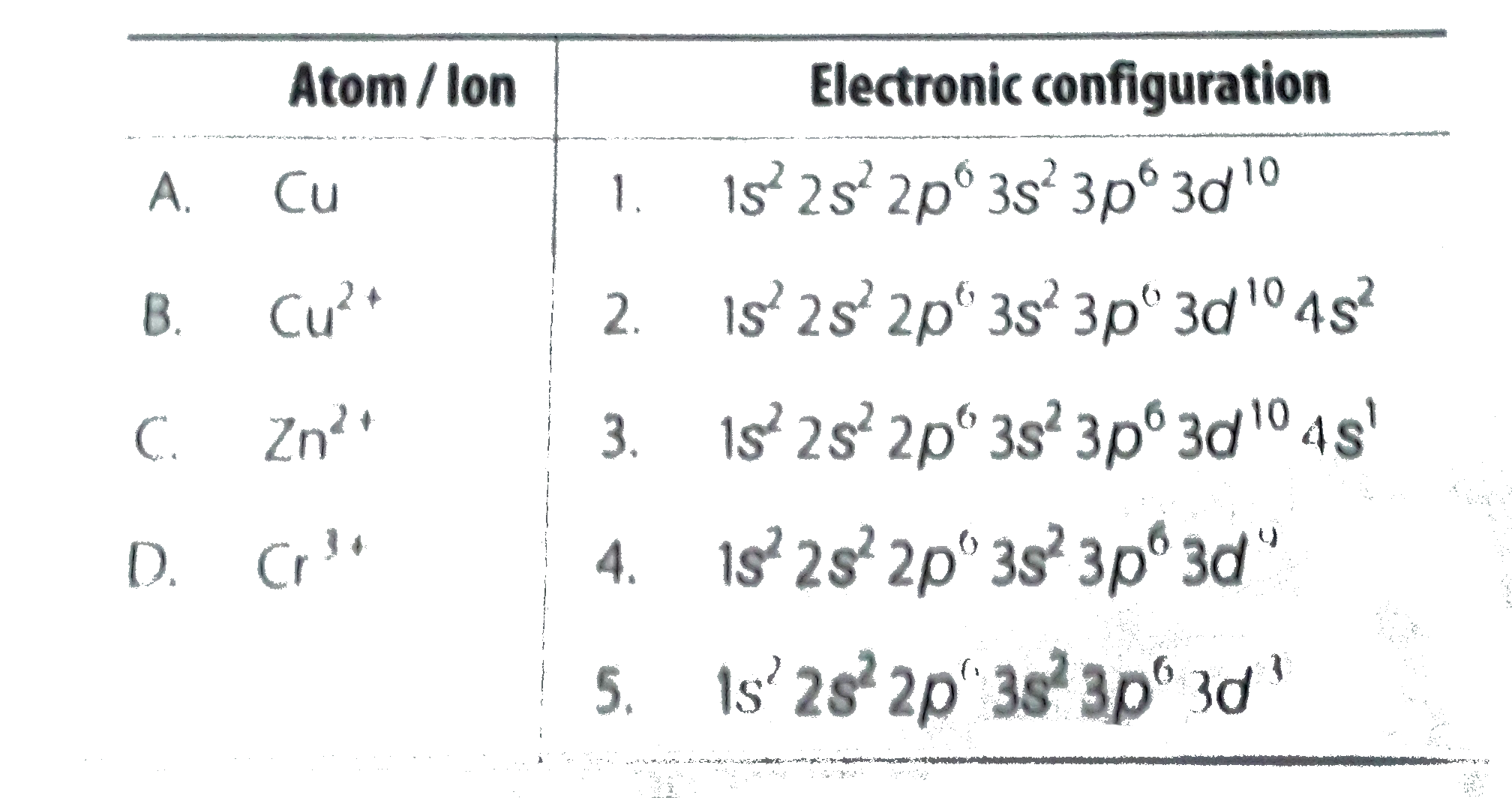
View SolutionMatch the quantum numbers with the information provided by these.

View SolutionMatch the following rules with their statements.
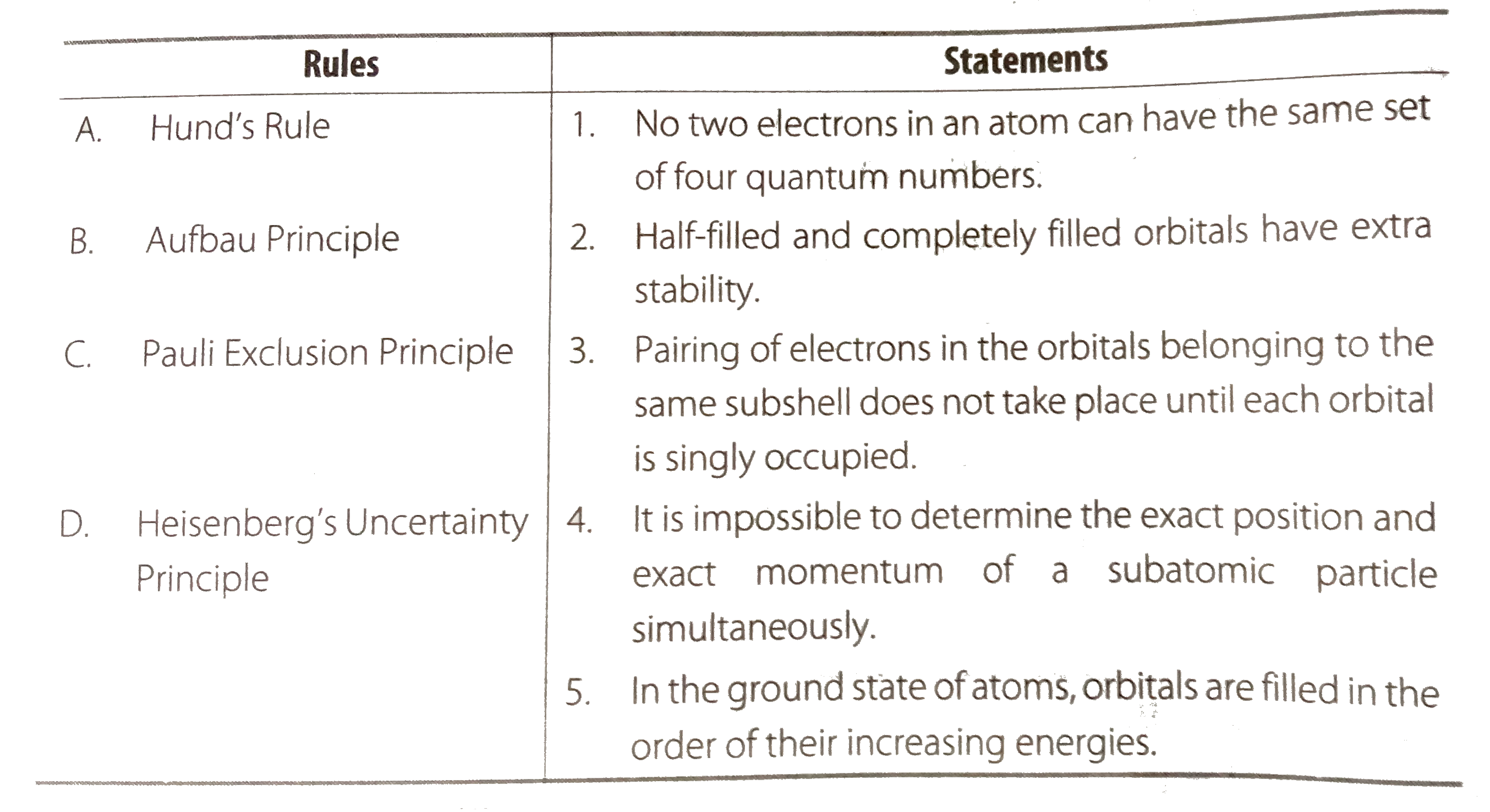
View SolutionMatch species given in column I with the electronic configuration given in column II.
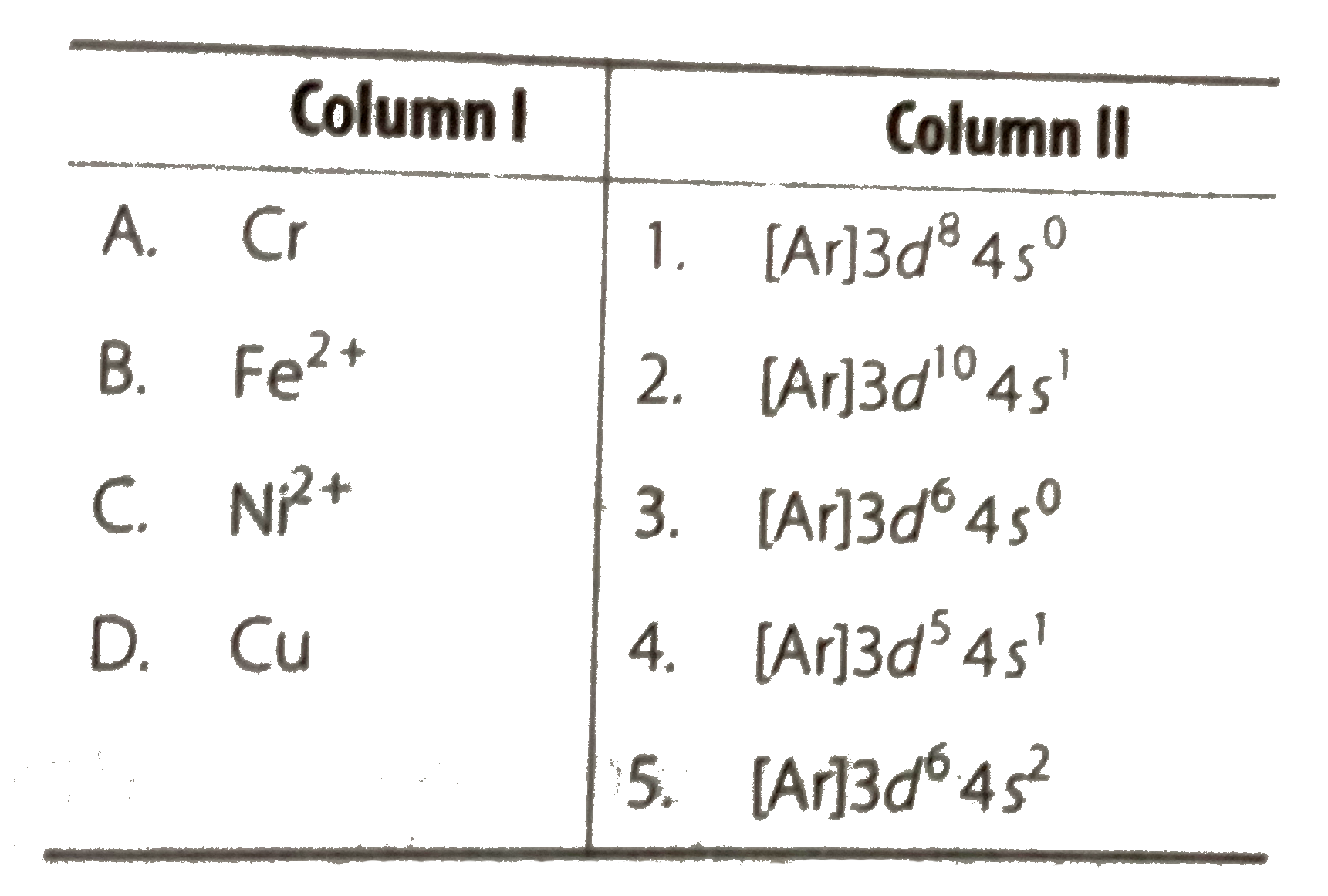
View SolutionAssertion(A): All isotopes of a given element show the same type of chemical behaviour.
Reason(R) The chemical properties of an atom are controlled by the numb er of electron s in the atom.
View SolutionAssertion(A) Black body is an ideal body that emits and absorbs radiations of all frequencies.
Reason(R) The frequency of radiation emitted by a body goes from a lower frequency to higher frequency with an increase in temperature.
View SolutionAssertion (A) It is impossible to determine the exact position and exact momentum of an electron simultaneously.
Reason (R) The path of an electron in an atom is clearly defiened.
View SolutionWhat is photoelectric effect? State the result of photoelectric effect experiment.
View SolutionThershold frequency, `v_(0)` is the minimum frequency which a photon must possess to eject an electron from a metal. It is different for different metals. When a photon of frequency `1.0xx10^(15)s^(-1)` was allowed to hit a metal surface, an electron having `1.988x10^(-19)J` of kinetic energy was emitted. Calculated the threshold frequency of this metal.
equal to 600nm hits the metal surface.
View SolutionWhen an electric discharge is passed through hydrogen gas, the hydrogen molecules dissociate to produce excited to produce excited hydrogen atoms. These excited atoms emit electromagnetic radiation of discrete frequencies which can be given by the general formula
`vecv=109677[(1)/(n_(i)^(2))-(1)/(n_(f)^(2))]`
What points of Bohr's model of an atom can be used to arrive at this formula? Based on these points derive the above formula giving description of each step and each term.
View SolutionCalculate the energy and frequency of the radiation emitted when an electron jumps from n=3 to n=2 ina hydrogen atom.
View SolutionWhy was a chagne in the Bohr Model of atom required? Due to which important development concept of movement of an electron in an orbit was replaced by the concept of probabiltiy of finding electron in an orbital?what is the name given to the changed model fo atom?
View Solution
All Questions questions and complete solutions for chapter STRUCTURE OF ATOM of NCERT CHEMISTRY (HINGLISH) of Class 11